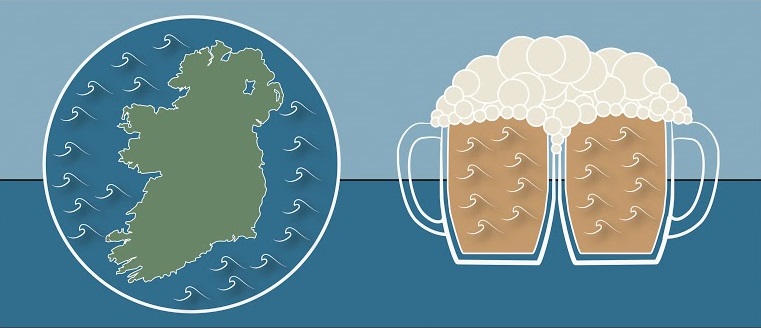
Employment
Two weeks ago, there was a news story about an Irish woman in South Korea who was rebuffed for a job interview because the employers thought Irish people drank too much. Katie Mulrennan had taught English in a number of cities around the world. She applied for a job through a recruiter on craigslist for a teaching job in Seoul, and received the reply in question. As if Irish people had not endured enough, being the butt of jokes on intelligence, and with lazy caricatures of Irish people being their only representation in Hollywood films for much of the twentieth century, this example highlights the very real potential for tangible negative effects of such stereotyping. Though Mulrennan has since found a job, and insisted to various media outlets that she loves Korea and being in Seoul, it’s problematic for other Irish people hoping to travel to work, as Mulrennan was clearly experienced, skilled, and proactive, but fell victim to a tired stereotype which didn’t disqualify her in any logical sense for employment in her chosen field. For a CV to be rejected outright on the basis of nationality, in effect, is a revival of the notion that “no Irish need apply”, which dogged those who had emigrated to various parts of the world for decades.
Problems of stereotyping certainly aren’t exclusive to the Irish experience. I have sat on the steps at the Pav, burning with embarrassment, as a man behind me insisted to his friends that he hated all white Australians, not realising that one was sitting two feet in front of him. His reasoning was based on the horrific events that happened in the wake of European settlement, but fundamentally misunderstood the causes and conditions of migration to Australia since then, the political environment surrounding the memory of these events, and the opinions of many people regarding successive governments and their policies. Any such stereotyping of someone on the basis of their nationality renders one incredibly small and inferior.
Instrument of oppression
Essentially, this kind of activity is an instrument of oppression. A person is made to feel as though they subscribe to these characteristics by virtue of someone else’s expectations. When they don’t, it becomes incumbent on them to prove that they are somehow different from people that they share many characteristics with, which encourages feelings of shame for their innate characteristics, and forces them to deride their compatriots. This instrument damages our trust in a person’s potential, and encourages the perpetuation of defeatist attitudes rather than providing people with a clean canvas upon which to paint.
Personal impact
However, these same feelings exist for “positive” stereotypes. As Oliver Burkeman wrote in the Guardian in a piece entitled “Why stereotypes are bad even when they’re good”, positive stereotypes are likely to be much more damaging than negative ones. In essence, he discussed that while those purporting to be of an open-minded persuasion may agree that negative stereotypes to be damaging, many are often happy to stereotype people for positive attributes associated with their race or other characteristics. That people assume that women are better in touch with their emotions, that gay men have a higher propensity to be style-conscious, or that black people are likely to perform well at sport, seems to many acceptable stereotyping. While people may be uncomfortable with assuming negative things about someone based on characteristics they can’t control, these “positive” stereotypes are ones that encourage people to feel self-conscious, depressed, or inadequate, when they don’t perform to these stereotypes.
This stereotyping, then, both positive and negative, stops people from proving merit. Instead of our hard work being the standard by which we are afforded opportunities, it is our race, gender, sexuality, or occupation. It is therefore beneficial for everyone to judge people not on face value, but with a depth of understanding, because while it may stand to benefit you now to put someone in to a box, at some point, you will find yourself trapped in a similar box. Both parties will lose out, as qualified candidates for jobs are turned away, or potential friendships are prevented, on the basis of acquired knowledge of stereotypes. Think then, of that box that we are trapped in, and how to get out. Taking each person as they come is a place to start.
Illustration: Mubashir Sultan






